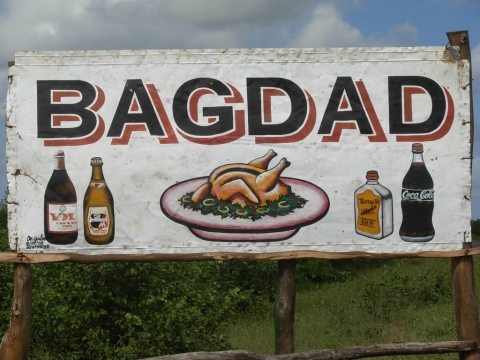
Hand-painted ads for liquor are everywhere in Mozambique. (Photo by Mercedes Sayagues)
Soft but strong with an alcohol content of 43%, Rhino has been linked to several deaths. (Photo by Mercedes Sayagues)
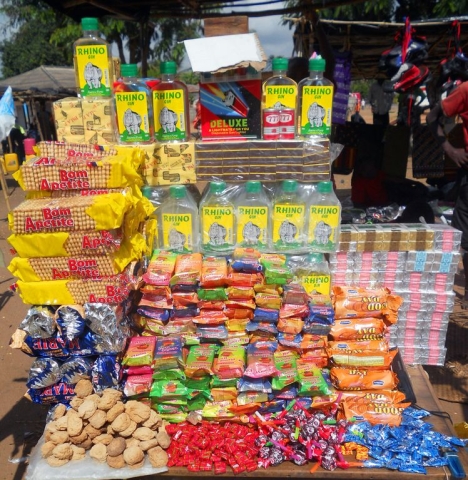
Hard liquor displayed next to snacks and candy tempts young consumers. (Photo by Mercedes Sayagues)
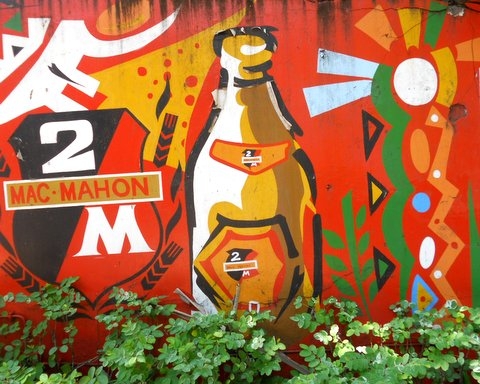
2M is arguably Mozambique’s most popular beer. (Photo by Mercedes Sayagues)
In the shadow of liquor ads: girls in Mueda town in northern Mozambique. (Photo by Mercedes Sayagues)
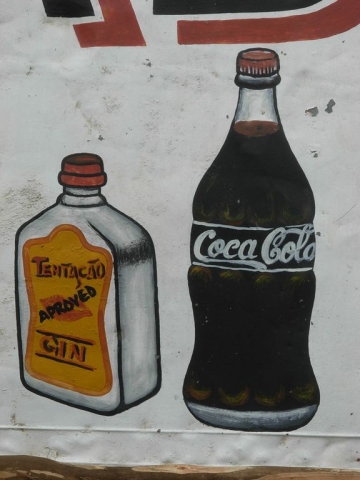
Tentacão tempts the young with its cheap price, just USD $1 for 250 ml. (Photo by Mercedes Sayagues)
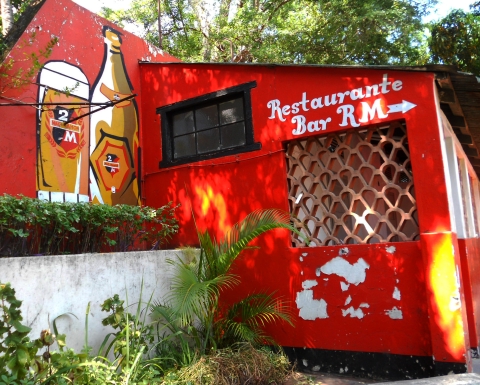
Bars and markets often display bold, colorful ads for the liquor they sell. (Photo by Mercedes Sayagues)
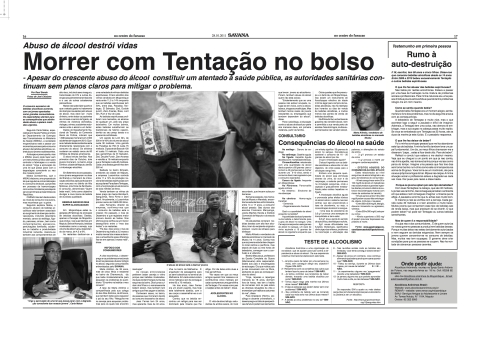
This article in the leading newspaper Savana includes a quiz designed to detect signs of alcoholism.
Alcoholism and binge drinking are serious problems here in Mozambique. Among the vile, cheap and lethal spirits sold – those with high alcohol content and low price, guaranteed to hit you like a punch from Rumble in the Jungle - the most popular is Tentacão (which means temptation, in Portuguese), less than US$1 for half a pint. Other brands are Lord Gin, Double Punch, Boss, Rhino and Paradise. The cheapest, Lord Gin, with 43% alcohol, costs US$1 for half a liter.
Though underage drinking is technically illegal here, no one seems to check. High school students routinely smuggle cheap liquor in soft drinks cans into school. Deaths by alcoholic coma appear frequently in the news. Last year, in a shocking incident in the northern Zambezia province, five men died of alcoholic comas induced by heavy doses of Rhino Gin ("soft but strong”) during a drinking contest sponsored by Rhino distributors. Others were hospitalized but survived.
Some "dumbanengues," or street markets, sell liquor 24/7, while gas stations sell unlimited alcohol to drivers. At midnight on weekends, youth in expensive 4x4s park by the gas stations, drink and dance to car stereos blasting hip-hop... and drive away at dawn.
Not surprisingly, cirrhosis and liver cancer are frequent. The Ministry of Health is worried about the cost of treating alcohol-related diseases. It links alcohol abuse to the unacceptable high toll of road deaths, domestic violence and HIV infection.
Despite all of this, there has been precious little written about alcohol abuse in the Mozambique press. Until now. When I floated the idea at an editorial meeting for Savana, the weekly newspaper where my fellowship is based and the partner in my project here, reporter Raul Senda stepped up to the challenge. That alone spoke volumes.
A year or two ago, only the health reporter would have taken the topic. For a highly regarded political reporter to tackle such a story shows how seriously health journalism is viewed here now. It may be thanks in part to the prize money that Savana reporter Salane Muchanga has won in the past year for three hard-hitting health stories. But I think it’s primarily because the quality of health reporting here has improved, which has given the health beat a higher ranking and more prestige. Senda wanted to tackle a health story to see if he was up to the challenge. In his own words: “Doing a story with Dona Mercedes is like a crash course in good journalism.”
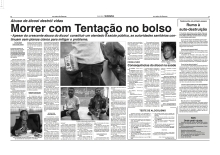
This article in the leading newspaper Savana includes a quiz designed to detect signs of alcoholism.
Tentacão is made by Lusovinho, the largest liquor company in Mozambique. Besides controlling 14% of the spirits market, it imports and rebottles 2.8 million liters of cheap red wine from Portugal every year.
Unhappy with the negative impact of our story on the company's image, the owner of Lusovinho chose corporate responsibility. He hired an ad agency to develop a TV and print campaign against drunk driving and underage drinking that ran in December. Such a response shows the impact of solid, well-documented reporting. It’s gratifying to know that our work isn’t absorbed into a giant black hole, but finds a receptive audience. It’s what every journalist hopes for: that your words inspire action.
This year, Lusovinho is funding a theater group to perform in high schools in Maputo warning of the danger of alcohol abuse and to drink responsibly, and we are doing a story about this next week. The budget for the campaigns is US$30,000 - a considerable sum in Mozambique - and one well spent in preventing deaths and disease from these lethal brews.